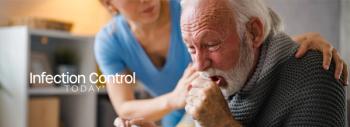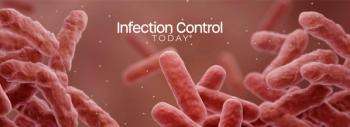
Intranasal Mupirocin and Topical Chlorhexidine Wipes Stunt Staph Colonization
Organisms like Staphylococcus aureus (S. aureus) might be common, but they can be uncommonly devastating to those infected. The US Centers for Disease Control and Prevention (CDC)
Infection control efforts for patients with staph can be challenging because contaminated environmental surfaces and medical equipment can lead to transmission. These nuances are amplified in treatment areas for susceptible patients, like those in oncology or intensive care units, but also pediatrics and neonatology. A
Researchers utilized a short-course mupirocin and topical chlorhexidine (CHG) bathing process in a randomized clinical trial with 190 neonates and their parents. The parents, colonized with staph, were in either the treatment group or the placebo group (petroleum intranasal ointment and nonmedicated soap cloths). In active treatment, there were 117 parents versus 119 in the placebo group, who were instructed to utilize the intervention for five days. The team stated that the end point was “concordant S. aureus colonization by 90 days, defined as neonatal acquisition of an S aureusstrain that was the same strain as a parental strain at time of screening. Secondary outcomes included neonatal acquisition of any S. aureus strain and neonatal S. aureus infections.”
In the follow-up, 190 total neonates were studied, 74 of whom (38.9%) acquired staph colonization at the 90-day mark. Of those colonized, over 56% had a strain concordant with a parental baseline strain. 13 of 89 neonates in the intervention group and 29 of 101 neonates in the placebo group, acquired concordant staph colonization. 28 of 89 neonates in the intervention group and 46 of the 101 placebo neonates acquired any staph strain.
Ultimately, the researchers emphasized that utilization of intranasal mupirocin and CHG wipes significantly reduced neonatal colonization with a staph strain that was concordant with a parental baseline strain.
If 56.8% of neonates in the placebo group versus 38.9% in the intervention group acquired concordant staph colonization, that’s a significant indicator for ability to break the chain of infection. While the authors don’t discuss if there were active infections later in the course of stay or any adverse outcome, colonization poses a risk to patients and especially those with weakened or naïve immune systems.
From the infection prevention perspective, including this strategy for NICU parents might be an effective way to reduce transmission of staph and help increase patient safety. Along with education on hand hygiene, environmental disinfection, and not visiting while sick, a decolonization protocol could be beneficial to parents, patients, and staff alike.
Newsletter
Stay prepared and protected with Infection Control Today's newsletter, delivering essential updates, best practices, and expert insights for infection preventionists.




